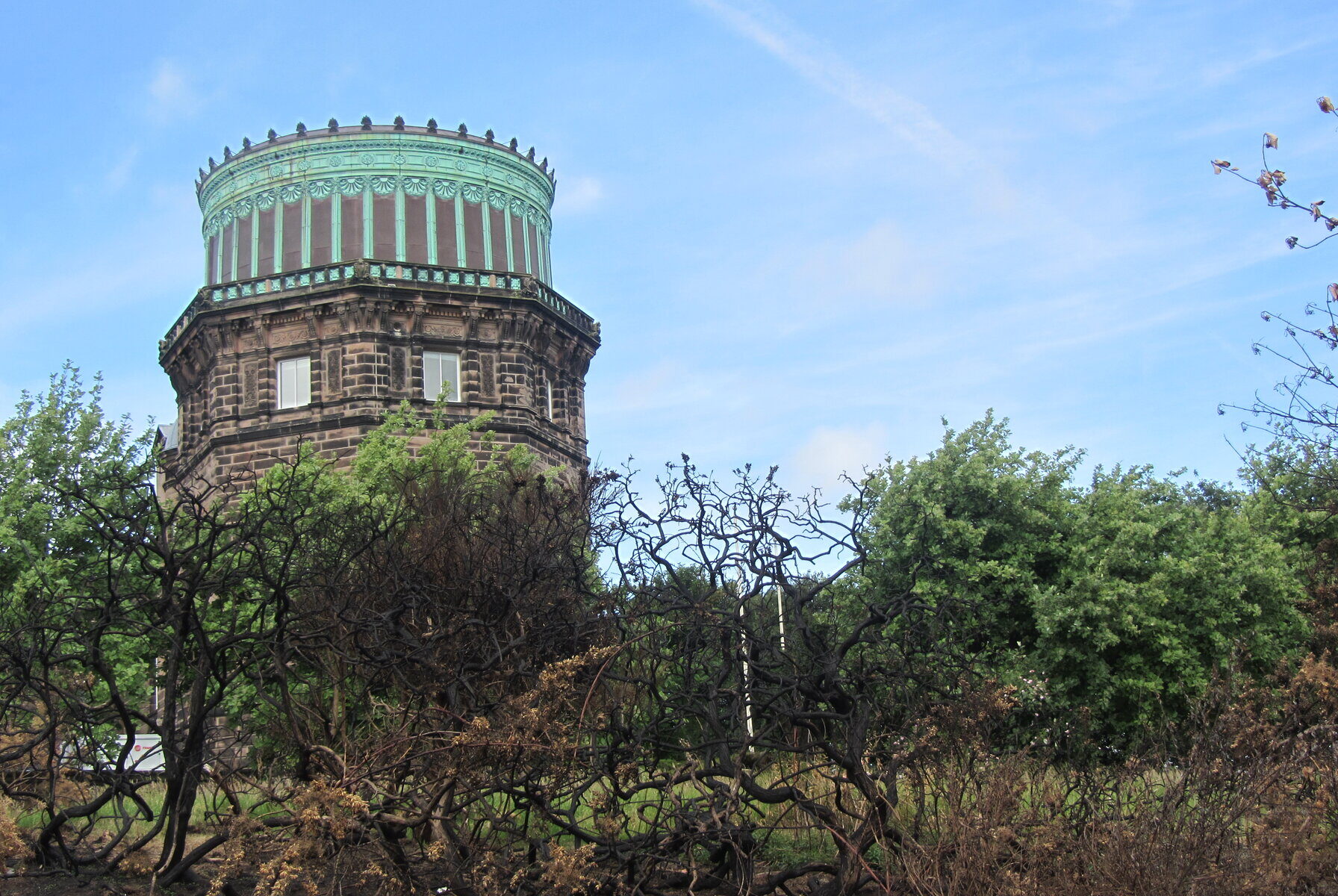By Catriona Roy
Ahead of his upcoming Entrepreneurial Masterclass on Monday 20th March, Communications Representative Cate Hamilton interviewed Stephen Roe, the School of Physics and Astronomy’s Entrepreneur in Residence, to find out about his career and how physics and industry can intertwine.
Since graduating from the University of Edinburgh with a physics degree, Stephen Roe has enjoyed a long and varied career in industry and consulting. As well as being Entrepreneur in Residence, he is the Chair of ŌGI Bio, a start-up founded by another Edinburgh physics graduate, and Chair of the Dollar Community Development Trust, supporting invaluable community projects in Dollar, Clackmannanshire.
Cate Hamilton: First of all, can you explain what the role Entrepreneur in Residence is?
Stephen Roe: Ok, so it’s for people like me that might have something to offer the School of Physics and Astronomy. It’s funded by the Royal Society, which is a very supportive organisation. So I work for the School on essentially two things they want me to do.
Firstly, on the last Research Excellence Framework, the School came out very well on three things: the output, the quality of the research, and on the environment which the research takes place in. But on the impact of their research they came out less well. So the Head of School, Jim Dunlop, wants me to look at how the School can improve their impact, and that’s what I’m doing.
And the second thing is in relation between the interaction between the School and Edinburgh Innovations, which is the part of the University that looks at how they can work better to improve the number of start-ups. Prior to this job, I had been working as a consultant for Edinburgh Innovations on three projects and I chair one of the companies that resulted from that.
In the School of Physics and Astronomy, there’s lots of business potential with the work researchers are doing here, so Edinburgh Innovations is there to help make that link.
My predecessor as Entrepreneur in Residence was Lucinda Bruce-Gardyne and she started a company called Genius Foods, that makes gluten free bread. She did a fantastic job through lockdown of setting up masterclasses, getting business people, industrialists and scientists in every couple of weeks, to talk to the School about their career. I’m doing a talk on the 20th of March up at the Observatory, so please come to that (see link below).
And I’m not really an entrepreneur – I’m really a problem solver, that’s really what I’ve built my career on.
CH: Right. Can you tell us a bit about your career?
SR: I started working in industry, pretty much from graduating, but for the first few years I didn’t really understand my job very well – and then I found that I could use that skill, problem solving.
The company I was working in was a steel foundry that made very large steel castings for power generation, for turbines and power stations. And it wasn’t being run very well. I got an opportunity to take on the running of the factory. I’d previously been a technical manager, but I wasn’t responsible for the production. And now I could see all the technical and quality problems we had were all to do with production. So I set about trying to work out what was wrong with the production processes. And that’s when I realised that my sort of knowledge of physics was quite important.
I then started doing company turnaround work. I would be hired as a chief executive to transform the performance of a business, and there’d be hundreds of technical problems, but the basic problem would be a management one. It could be something like the leader doesn’t believe in quality. It was these sorts of things that I would spend my career fixing.
CH: So problems due to a lack of understanding among the management of the importance of the science and technical attention to detail?
SR: Yes, exactly so. I spent four years with an American consulting company doing what we call operations, building things, designing things. My biggest client was Apple, in Cork. And, same sort of thing again, when they design a computer in California, the policy is to release it globally all at the same time. But an American computer isn’t fit for a European market, because the European market requires many different languages and keyboards and power cables.
There’s a process called engineering change that takes the American computer and turns it into the multiple varieties of European computers. To take one computer into the European market took a thousand changes, and Apple that year were about to introduce three computers all at once, and they didn’t know how to manage it, so they asked me to come and help them simplify the change process. So that’s the kind of stuff I was doing, and it transformed Apple’s performance.
CH: You’ve mentioned problem solving as a skill, which is something that we all learn through studying physics at university. What other skills have been important?
SR: Well, I’ve always been very curious, as physicists generally are, to know how things work. So, it was that curiosity that drove me to work out what the underlying problem is. And then I went on to apply that later, not to technical problems but to management problems.
CH: Have the technical skills you’ve learnt from physics also been useful?
SR: Yes. Probably my biggest technical challenge was a job I did for five years when I was responsible for the technical operations of a company making digital retinal scanners. When I got that job, I realised there was a lot of precision optics involved, so I went to my bookcase and pulled out my physics book about optics, which I’d never opened. So I was in trouble and I had to learn quite quickly. I think the thing I have always done is learn quickly.
CH: Thank you for taking the time to do this interview. As a final question, what do you think current physics students could take away from your experience?
SR: Well, everyone’s different, so you know, I would never have been a good academic because I just don’t like doing the same thing for a long time. I enjoy variety, and I found the way my mind works and the training I’ve had a physicist meant I was very adaptable. If someone asked me something about electronics or optics or such, I could pick it up really quickly.
So I think that kind of training gives you facility to do lots of things. I’ve chosen my set, but there are other options. Physics gives you a lot of adaptability.
Stephen Roe’s masterclass, Entrepreneurial Masterclass: What a Physicist brings to success in business with Stephen Roe is on 20th March 2023 in the Higgs Centre at the Royal Observatory Edinburgh:



